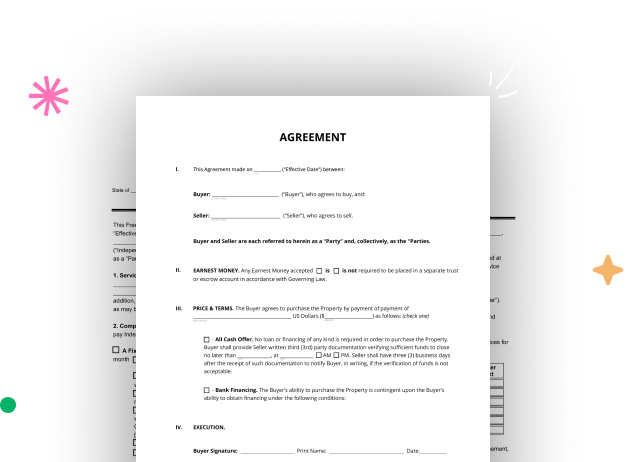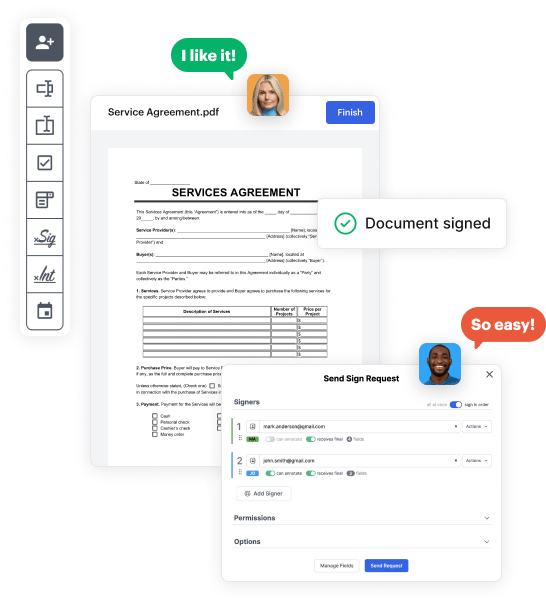

Start by setting up a free DocHub account using any offered sign-up method. Simply log in if you already have one.
Try out the complete collection of DocHub's advanced features by registering for a free 30-day trial of the Pro plan and proceed to craft your Specific Power of Attorney Form.
In your dashboard, click the New Document button > scroll down and choose to Create Blank Document. You’ll be taken to the editor.
Use the Page Controls icon marked by the arrow to switch between different page views and layouts for more convenience.
Navigate through the top toolbar to add document fields. Add and configure text boxes, the signature block (if applicable), insert images, etc.
Organize the fillable areas you incorporated per your preferred layout. Adjust each field's size, font, and alignment to ensure the form is straightforward and neat-looking.
Save the ready-to-go copy in DocHub or in platforms like Google Drive or Dropbox, or craft a new Specific Power of Attorney Form. Send out your form via email or get a public link to engage with more people.